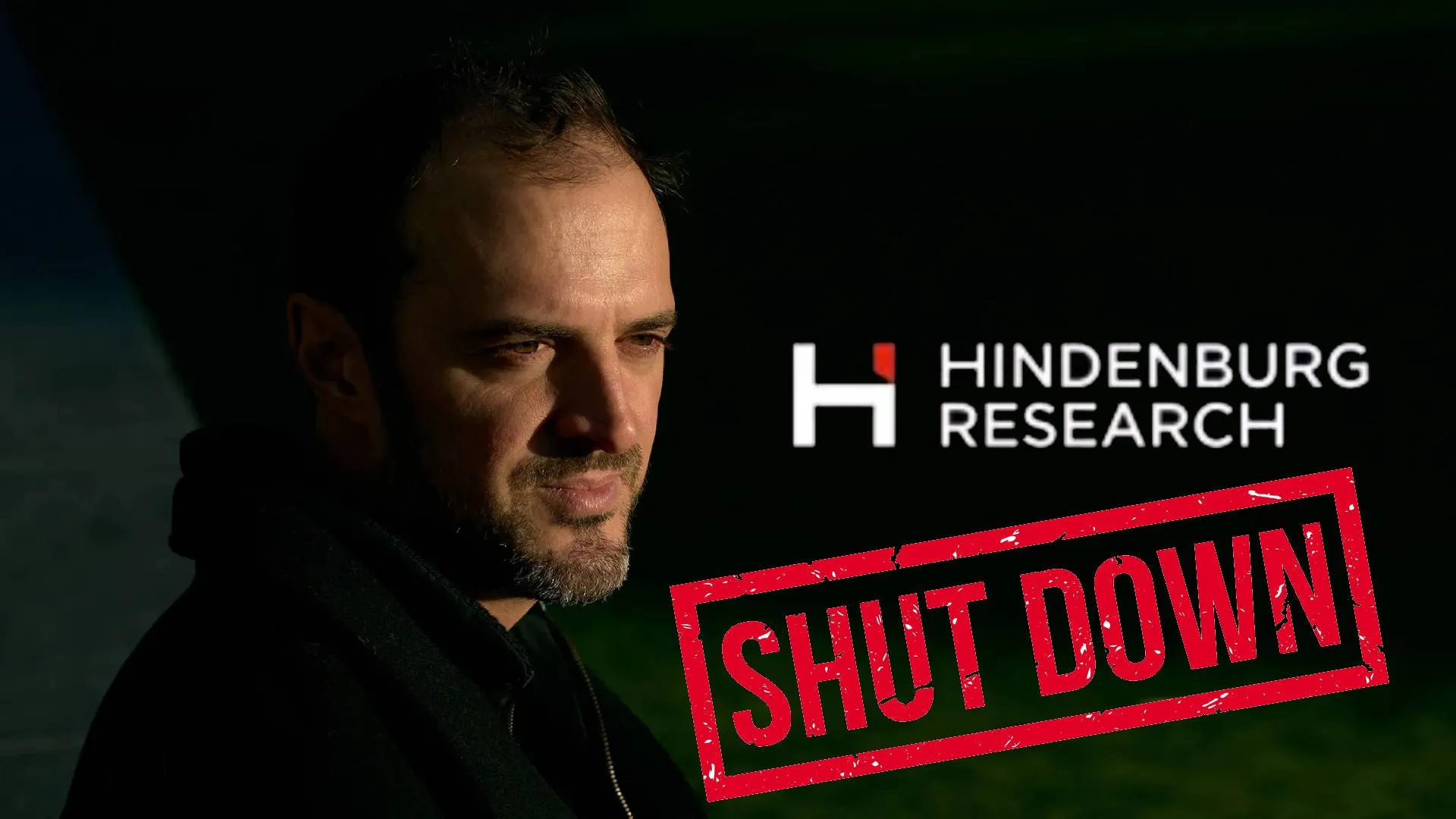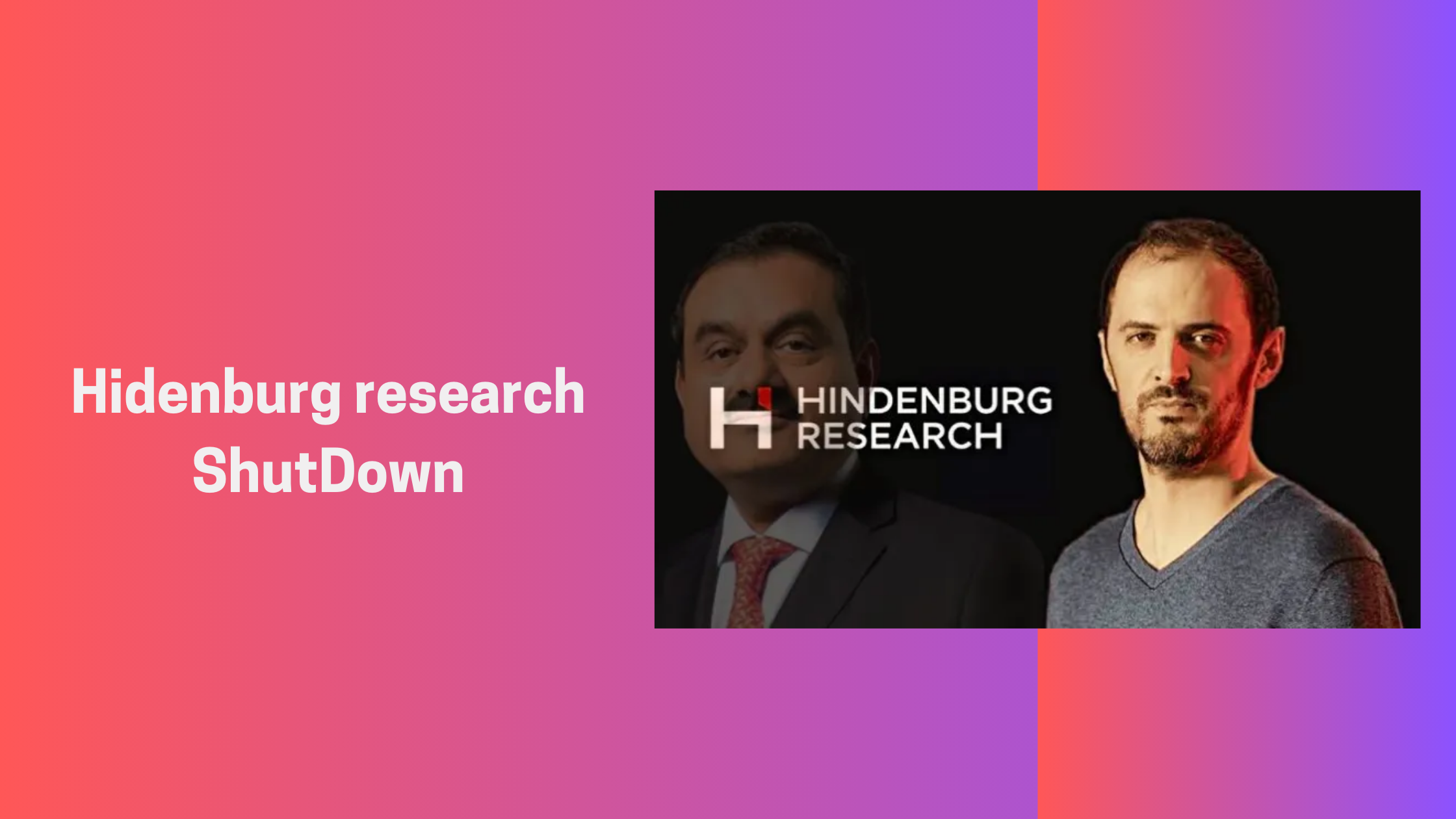Hindenburg Research, a US-based financial research firm and short-seller known for its explosive reports, has announced its decision to cease operations. The announcement has generated significant debate in financial and political circles, particularly due to its role in exposing corporate malpractices. Hindenburg’s sudden closure raises questions about its practices, motivations, and the larger implications for global financial markets.
Hindenburg Research’s Legacy

Founded in 2017 by Nate Anderson, Hindenburg Research gained international recognition for its controversial short-selling methods. The firm’s modus operandi involved publishing investigative reports on companies, often accusing them of fraud or corporate misconduct. Simultaneously, Hindenburg would take short positions against these companies, profiting from the subsequent fall in stock prices.
The firm gained worldwide notoriety in January 2023 when it released a damning report on India’s Adani Group, accusing the conglomerate of stock manipulation and accounting fraud. The allegations caused a dramatic sell-off in Adani Group stocks, wiping out over $150 billion in market value. This report not only disrupted the Adani Group’s financial standing but also triggered global discussions on the role of short-sellers in financial markets.
Why Is Hindenburg Shutting Down?

Nate Anderson, the founder of Hindenburg Research, cited personal reasons for the firm’s closure. In a statement, Anderson explained, “There is not one specific thing—no particular threat, no health issue, and no big personal issue. The intensity and focus have come at the cost of missing a lot of the rest of the world and the people I care about.”
However, critics and experts speculate that the reasons might go deeper. Allegations of regulatory pressure, legal proceedings, and financial unviability have been put forth as possible factors. The Securities and Exchange Board of India (SEBI) and other global regulatory bodies have been investigating Hindenburg’s operations. Many believe that these investigations, coupled with mounting criticism of its methods, may have compelled the firm to shut down.
Impact of the Adani Group Report

Hindenburg’s most significant and controversial contribution was its report on the Adani Group. The report accused the conglomerate of pulling off “the largest con in corporate history.” The fallout was immediate and catastrophic for the group, which saw its stocks plunge and its chairman, Gautam Adani, lose his position as Asia’s richest person.
The Adani Group vehemently denied the allegations, calling them baseless and politically motivated. The Indian government, financial regulators, and political parties also got embroiled in the controversy. Critics accused Hindenburg of acting against India’s economic interests, while opposition parties in India used the report to question the government’s ties with the Adani Group.
Join us Free prediction and More information about cricket join us on our Telegram channel
Political Reactions
The closure of Hindenburg Research has sparked diverse political reactions. In India, Congress leader Jairam Ramesh remarked that the firm’s shutdown does not absolve the Adani Group of wrongdoing. He alleged that the “Modani Mega Scam” extended beyond securities law violations, implicating Indian foreign policy and investigative agencies in favoring the Adani Group.
On the other hand, the ruling Bharatiya Janata Party (BJP) criticized Hindenburg’s practices, calling them acts of “economic terrorism.” BJP spokesperson Shehzad Poonawalla accused the firm of publishing “sponsored and orchestrated” reports to destabilize India’s economic growth.
Kerala Lottery Wednesday Result Today 01-01-2025: Fifty Fifty FF-123 Lucky Draw
